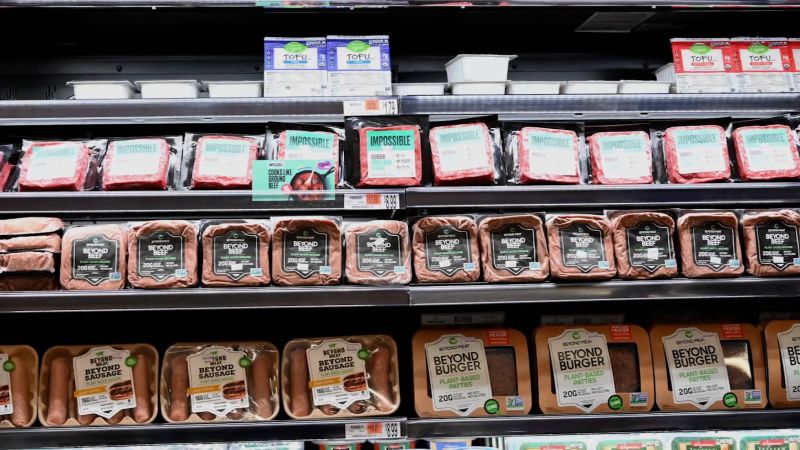
In a recent interview with CNN’s Jake Tapper, author Michael Grunwald highlighted the unsustainable levels of meat consumption worldwide and proposed simple dietary changes that could make a significant environmental impact. As the global demand for meat continues to rise, experts warn that the current trajectory is not sustainable for the planet.
Grunwald, known for his insightful analyses on environmental issues, emphasized that even minor adjustments in our eating habits could lead to substantial benefits for the environment. “Reducing meat consumption by just a small amount can decrease greenhouse gas emissions significantly,” he stated.
The Environmental Cost of Meat Production
Meat production is a major contributor to environmental degradation, accounting for a significant portion of global greenhouse gas emissions. According to the United Nations Food and Agriculture Organization, livestock is responsible for approximately 14.5% of all anthropogenic greenhouse gas emissions. This includes methane from cattle digestion and nitrous oxide from manure management.
The environmental impact extends beyond emissions. The meat industry is also a leading cause of deforestation, particularly in regions like the Amazon rainforest, where land is cleared for cattle ranching. This deforestation not only contributes to carbon emissions but also threatens biodiversity and disrupts ecosystems.
Simple Changes, Big Impact
Grunwald suggests that individuals can make a difference by adopting a more plant-based diet. “Incorporating more plant-based meals into your diet, even if it’s just one or two days a week, can have a profound impact,” he explained. This approach, often referred to as ‘flexitarianism,’ encourages people to reduce meat consumption without eliminating it entirely.
The benefits of such dietary shifts are supported by numerous studies. A report by the World Resources Institute found that if Americans reduced their beef consumption by 50%, it would result in a reduction of greenhouse gas emissions equivalent to taking 10 million cars off the road.
“If Americans reduced their beef consumption by 50%, it would result in a reduction of greenhouse gas emissions equivalent to taking 10 million cars off the road.” – World Resources Institute
Historical Context and Future Implications
The call for reduced meat consumption is not new. Historical parallels can be drawn to the post-World War II era when meat rationing was common, and plant-based diets were more prevalent out of necessity. However, today’s advocacy is driven by environmental concerns rather than scarcity.
As awareness of the environmental impact of meat production grows, more individuals and organizations are advocating for change. The rise of plant-based meat alternatives, such as those offered by companies like Beyond Meat and Impossible Foods, reflects a shift in consumer preferences and a growing market for sustainable food options.
Looking forward, experts believe that policy changes could further accelerate this shift. Implementing carbon taxes on meat production or providing subsidies for plant-based foods are potential strategies to encourage more sustainable consumption patterns.
Conclusion: A Collective Effort for a Sustainable Future
The conversation with Grunwald underscores the importance of individual choices in the broader context of environmental sustainability. While systemic changes are necessary, the collective impact of small, individual actions should not be underestimated.
As the world grapples with the challenges of climate change, adopting more sustainable eating habits could be a simple yet powerful step towards a healthier planet. The future of food production may well depend on our ability to adapt and embrace these changes.
The dialogue around meat consumption and its environmental impact is likely to continue, with more voices joining the call for action. As Grunwald aptly put it, “Every small change counts, and together, we can make a big difference.”







